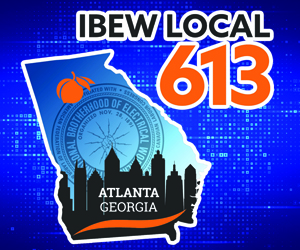Under the GHSA BY-LAW 1.72 (c) “A student-athlete transferring from one member school to another shall be ruled ineligible for one year because of “undue influence” if it is proven that the player who played for a coach at a former GHSA school followed that coach when he/she moved to another GHSA school. (This is not applicable to dependent children of the coach.)” The by-law is included under the Recruiting/Undue Influence section of the Student Certification of Eligibility.
Transfers take place every year in Georgia high school sports, and while many are due to families legitimately moving for jobs or hardships, some cases draw the attention of the GHSA. The slippery slope that is transfer eligibility always seems to have one or two cases a year that perk up people’s eyebrows, and recently a situation at Shiloh High School came to the forefront. Coach Brian Montgomery went 2-8 in his first season at Shiloh after coming to the Gwinnett program from North Atlanta. Following the season, Shiloh quarterback Wil Larimore wrote an article for the AJC, in which he admitted that he and several teammates were asked by Montgomery to transfer, a direct violation of By-Law 1.72 (c).
A GHSA spokesperson revealed that an investigation is ongoing but would not comment on it any further. GHSA executive director Dr. Ralph Swearngin will be handling the investigation according to the governing body, but he is out of town until Monday and unable to comment.
In recent cases involving eligibility/transfer issues wins have been stripped by the player’s new team. Once such instance was with the Milton boys basketball program this past season. Three wins earned by the Eagles were later forfeited, though Milton did win the 2011-12 Class AAAAA state title. Interestingly enough, Charles Mann, the player that warranted the forfeits, was ineligible for the championship game following an ejection during the playoffs. Shiloh could be stripped of its two wins from one year ago, though the GHSA would not comment on that possibility.
Montgomery has been moved by the Gwinnett County Public Schools to another position in the school system, and, according to spokeswoman Sloan Roach in a piece by the AJC, the district will be recommending his non-renewal to the Board of Education at its April 19 meeting. A message left for Roach was not returned at press deadline.
Not all transfers need investigating, however. In many cases, the transfer is legitimate and a player is eligible immediately. Lassiter head football coach Jep Irwin spoke with Score about how the process is supposed to play out. “A new student’s family contacts the school administration to set up enrollment,” said Irwin. “You have to be both eligible as a student as well as an athlete in order to play.”
Irwin noted that the administration receives records verifying the student’s history and it is also up to the family to ensure that all records are properly transferred and eligibility guidelines are followed. “We (myself and my coaches) don’t initiate any contact whatsoever because that would be a violation,” said Irwin. The Lassiter coach attends several meetings a year where rules, such as one involving transfers, are explained in detail to coaches.
While Irwin did not want to comment on the Shiloh situation specifically, he did say that he hopes it can serve as a wake up call for all coaches. “You need to be aware of what’s going on in your program.”
Transfers can certainly be a sticky situation if the by-laws are not followed to the final detail. The GHSA will soon make a ruling on the Shiloh situation, and it will be interesting to see if an example is made of the program in an attempt to scare other programs straight.






















































